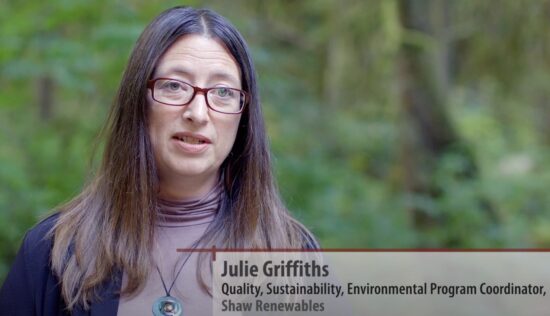We are heading toward a greener future that foresees more and more use of biomass as a renewable energy and one just has to look at the volume of ENplus certificates to see that high quality wood pellets are part of this future.
WPAC is nothing if not preparing for the future. In its latest video release, The Power of Pellets: The Benefits of ENplus Certification, its members drive home the message: If you’re a Canadian pellet producer, and you want to know that you’re making a world-class pellet, get certified!
Established in 2011, ENplus has over 1,200 certified companies, representing more than 1,200 million tonnes of ENplus certified wood pellets, which translates to more than 79 per cent of all pellets that are used in the European heating market.
British Columbia-based Premium Pellet has had ENplus certification since 2013 as a part of its sales strategy into Italy and other parts of Europe. “As wood pellet sales continue to grow, many customers are requesting ENplus certification as part of their agreement with us,” says Mike Fantillo, production supervisor.
According to Julie Griffiths, quality, sustainability, and environmental program co-ordinator at Shaw Renewables it’s not difficult to get certified.
“Once you’ve got the support of your management and employees, you can dive right in. It’s just a matter of streamlining some of your processes, adding a bit more documentation and really making your system more robust.”
To find out more visit our certification page.
Fahimeh Yazdan Panah, Ph.D., is the director of research and technical development for the Wood Pellet Association of Canada.
This article was originally published by Canadian Biomass, a national media brand providing coverage of the emerging biomass, bioenergy and bio-products markets. See CanadianBiomassMagazine.ca for more information.

